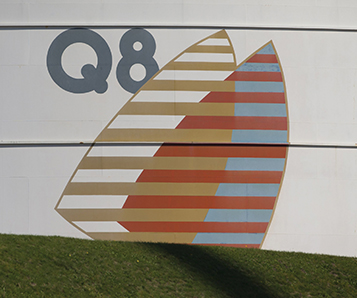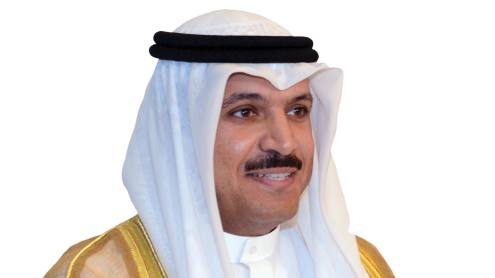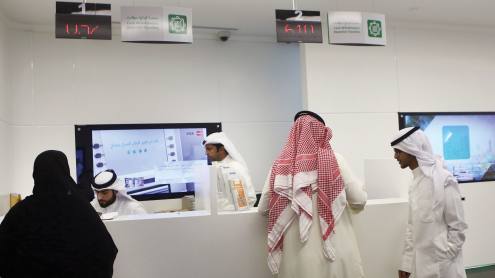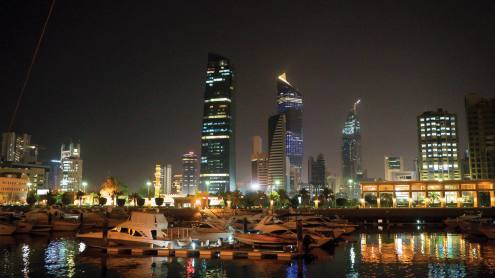Just as Kuwait and other major oil producers had begun to come to terms with lower prices, the market has once again been thrown into turmoil, with prices hitting lows last seen in 2003.
Oil prices had fallen from about $68 per barrel at the start of 2020 to about $50 at the end of February, on early fears over the impact of the coronavirus on the global economy. The market went into freefall in the second week of March, however, after the spectacular collapse of the agreement between dominant producers Saudi Arabia and Russia, struck in late 2016, to support prices.
factbox
In its place has come a full-blown price and supply war between the two countries, with the additional aim (from the Russian side, at least) of crippling the finances of shale-oil producers in the US, the world’s largest oil exporter. The combination of a major demand shock and a huge oversupply has driven Brent crude futures to below $25 a barrel, their lowest price in 17 years.
Tit for tat
The collapse in prices came after Russian energy minister Alexander Novak announced on March 6 that producers would face no constraints on production from April 1. Saudi Arabia responded with unprecedented measures to flood the market and eat away at Russia’s market share. After cutting prices by up to $8 a barrel – saving its biggest discounts for Russia’s largest customers in north-east Europe – Riyadh announced that state-owned Saudi Aramco would increase capacity to a record 13 million barrels per day.
Kuwait, the fifth largest producer in the Organisation of the Petroleum Exporting Countries (OPEC), swiftly followed Saudi Arabia’s lead, granting the same discount as Saudi Arabia to its Asian customers, according to Bloomberg, while raising its output by 110,000 barrels per day.
Kuwait is also one of the best-placed members of OPEC+ – the group that includes OPEC and non-OPEC producers – to raise production capacity in the short term, thanks to the resumption of oil production in its ‘neutral zone’ with Saudi Arabia, where the two countries have joint control over the onshore Wafra and offshore Khafji fields. Production was halted at the Khafji field in October 2014, while Wafra was shut down under instructions from Saudi Arabia in May 2015.
Yet the two countries signed a deal in December 2019 to recommence production at the fields, which have a combined capacity of 500,000 barrels per day. Bloomberg reported in March that the Kuwait Petroleum Corporation had told customers that production at the Khafji field had already restarted, with output from the Wafra field due to restart by mid-May.
The way back
With the contours of the crisis over oil prices still taking shape as The Banker went to press, prospects for the market remain unclear.
On March 20, S&P Global Ratings lowered its price estimates for 2020 to $30 a barrel for Brent crude, from $40 previously, warning: “Oil markets are heading into a period of a severe supply-demand imbalance in the second quarter of 2020.” Yet the rating agency left its forecast of an average price of $50 a barrel for Brent crude for 2021 unchanged, anticipating “a recovery in both gross domestic product and oil demand through the second half of 2020 and into 2021 as the most severe impacts from the coronavirus outbreak moderate”.
While the impact of the global coronavirus pandemic on demand for oil is hard to quantify, producers are already looking at ways to regulate supply to support prices.
“It is not completely ‘game over’ just yet, and a key near-term upside risk is one where OPEC+ quickly reconvenes and agrees on an output reduction,” Ehsan Khoman, head of Middle East and north Africa research and strategy at MUFG, said in a note in early March.
Co-operation possible
Such attempts appear to be under way already. Igor Sechin, CEO of Russia’s largest oil company, Rosneft, downplayed the dispute between Russia and Saudi Arabia, predicting a rebound in prices later in 2020 once US shale producers have borne the brunt of lower prices.
The same day, the Financial Times reported that OPEC secretary general Mohammed Barkindo had met with a Texas state energy regulator and US shale producers about coordinated cuts to oil output in order to bolster prices.
While an agreement between OPEC and US shale producers may be considered unthinkable, the same once applied to collaboration between OPEC and Russia before the two struck an agreement in late 2016. “This is not the first time OPEC and its allies have not been aligned on the most appropriate strategy, and both sides have been able to provide workable solutions in the past,” said Mr Khoman.













